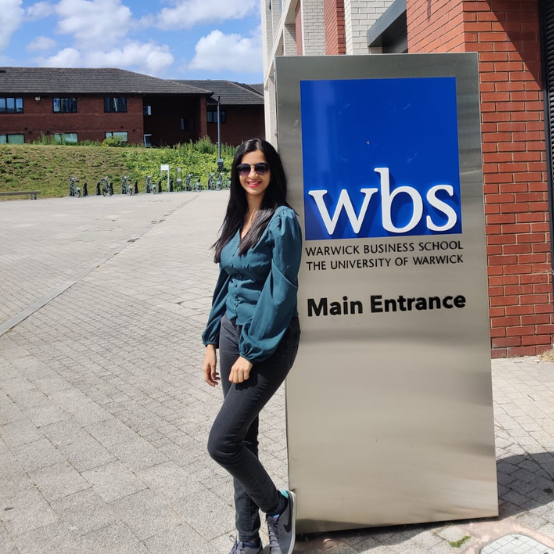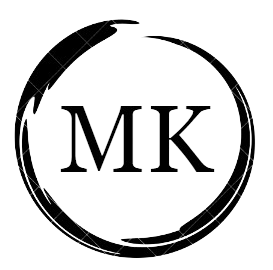MSc Business Analytics at WBS: What to Expect

This blog is for all the students who aspire to pursue an MSc in Business Analytics from Warwick Business School (WBS). Over the past two years, I've received numerous messages on LinkedIn asking about my experience, so I decided to compile the most frequently asked questions and share my journey in detail here.
When did you apply, and how long did it take to get an offer? Did you receive a scholarship?
I submitted my application in mid-November 2021 and received an offer on January 25th—a day I will always remember as one of the most exciting moments of my life! I still vividly recall how ecstatic I was when I got the offer.
Unfortunately, I didn't receive any scholarships. Scholarships are quite competitive and are typically awarded along with the offer letter, and only a select few are chosen. There are other external scholarships you can apply for, such as the Commonwealth Scholarship. However, this particular scholarship requires you to return to your home country after completing your studies unless you find a UK-based company to sponsor your work visa. Given these conditions, I chose not to apply.
How was your academic and faculty experience?
Overall, my academic and faculty experience at WBS was very positive. The faculty members were generally friendly and approachable, making the learning environment supportive (although there are always exceptions). The course itself was highly practical and aligned well with industry standards, which proved invaluable when I started my first job after completing my master's.
However, be prepared for an intense journey—the course is quite rigorous due to its length and the volume of work. Each module includes individual assignments, group projects, and an exam at the end, all while you're also preparing and applying for jobs. It’s a challenging balance, but the experience teaches you to handle pressure, juggle multiple tasks, and adapt quickly.
Moreover, working on group assignments is a unique experience in itself. You might end up collaborating with someone who doesn’t speak the same language as you, comes from a completely different background, and has had diverse experiences. Learning to work together towards a common goal in such an environment is incredibly valuable, especially once you start working in the UK.
How was the course structure and which electives did you choose?
The course structure at WBS was a mix of compulsory modules and a selection of electives. Among the compulsory modules, Optimization Models stood out as the toughest one, challenging many of us with its complexity.
For my electives, I chose Text Analytics, Forecasting, and Pricing Analytics, and I thoroughly enjoyed them. Text Analytics was incredibly practical and engaging—you get to work on some really exciting projects. If you’re into web scraping or performing sentiment analysis, this module is definitely for you. Forecasting was known to be one of the more challenging subjects; many students were apprehensive about it because of its complexity. However, I found it both interesting and well-taught. While I felt we only scratched the surface in this module, the foundational knowledge we gained is crucial for understanding more advanced algorithms in the future. Pricing Analytics, on the other hand, was probably the simplest and most enjoyable module. The professor’s teaching style made the learning process fun and engaging, which was a big plus.
Was the course more technical or business-focused?
When I completed my MSc, the course was definitely more technically focused than business-oriented. At least during my time, that was the case. However, I believe the course structure has evolved significantly since then, incorporating more business-focused modules. For example, the Business in Practice (BIP) route wasn’t available when I was doing my master’s.
So, yes, a basic knowledge of Python/R and SQL is essential. It would also be beneficial to have a grasp of data analytics and statistics before starting the course.
How much work experience should you have before starting this course?
There’s no strict rule regarding the amount of work experience you need before starting this course, and there’s certainly no age limit for pursuing a master’s degree. However, based on my experience, I would recommend having 2-3 years of work experience before enrolling in this program.
In my cohort, students with more than three years of experience often felt that the course wasn’t as beneficial for them. Some believed they were already familiar with much of the material being taught, while others expected a curriculum with a stronger focus on business, perhaps similar to what you might find in an MBA program. The MSc in Business Analytics, however, isn’t designed that way; it’s generally geared toward individuals with little to no experience in analytics. For reference, the average age in my cohort was 22, and only a handful of students had more than three years of work experience.
Which dissertation did you choose and why?
At the time, we had two options for our dissertation: an Internal Dissertation or an External Dissertation. The Business in Practice (BIP) route wasn’t available to us then.
I chose to do an Internal Dissertation mainly because I already had two years of work experience and had secured a job offer before starting my dissertation. Given this, I didn’t feel that pursuing an External Dissertation, which often involves working with an external company, was worth the risk for me.
Instead, I decided to take a more proactive approach by researching and pitching my own topic to several professors whose mentorship I was interested in. This approach provided me with two key benefits: I was able to work on a topic I was genuinely passionate about, and I had the opportunity to choose the professor I wanted to guide me. It was truly a win-win situation.
Did you do any part-time jobs?
I didn’t take on any part-time work during my first term because it was already quite hectic. Adjusting to a new environment and routine, along with balancing studies and job applications, made it challenging to consider adding more to my plate. However, once I felt more settled and the course load lightened, I started working as a Facility Supervisor at the Warwick Library. I secured the job through Unitemps, the university's employment service.
Some of my friends also worked part-time, often in restaurants or grocery stores. From my experience and the feedback I got from others, the library job was the best part-time job you could get. It provided a good working environment and was conveniently located on campus, saving me travel time. Plus, I could easily continue studying there after my shifts, which made it a great fit for balancing work and academics.
Would you recommend living on campus or off-campus? What was your choice?
Personally, I would recommend staying on campus. It provides a safe environment, saves you travel time, and allows you to fully immerse yourself in campus life, which is an experience you might miss if you live off-campus.
That said, many of my friends chose to live off-campus in nearby towns like Coventry, Kenilworth, and Leamington Spa. Of these options, I wouldn’t recommend Coventry due to its relatively high crime rate. However, Kenilworth and Leamington Spa are beautiful towns with a lot to offer, making them great places to live.
As for me, I lived on campus in Benefactors Hall (and no, I’m not that wealthy!). I stayed in a shared apartment, which made the rent comparable to Lakeside Accommodation. I applied for housing in mid-May, and overall, I loved my on-campus experience. Warwick's campus is stunning, and I enjoyed unwinding after a stressful day by taking walks along the lake or in the woods behind Benefactors.
Living on campus also provided easy access to the many study spaces available, which I could use until late at night without worrying about commuting. This convenience definitely saved me time and money.
Closing
Overall, my time at Warwick Business School was an incredible journey filled with challenges, learning, and growth. From navigating a rigorous academic schedule to making lifelong friends and enjoying the beautiful campus, every aspect contributed to a truly enriching experience. I hope this blog helps those of you considering the MSc in Business Analytics at WBS. Remember, everyone’s journey is unique, so take the time to explore your options and choose what feels right for you. Best of luck with your decision, and I’m always here to answer any questions or share more about my experiences!
You can read my other blogs on Warwick's website:




